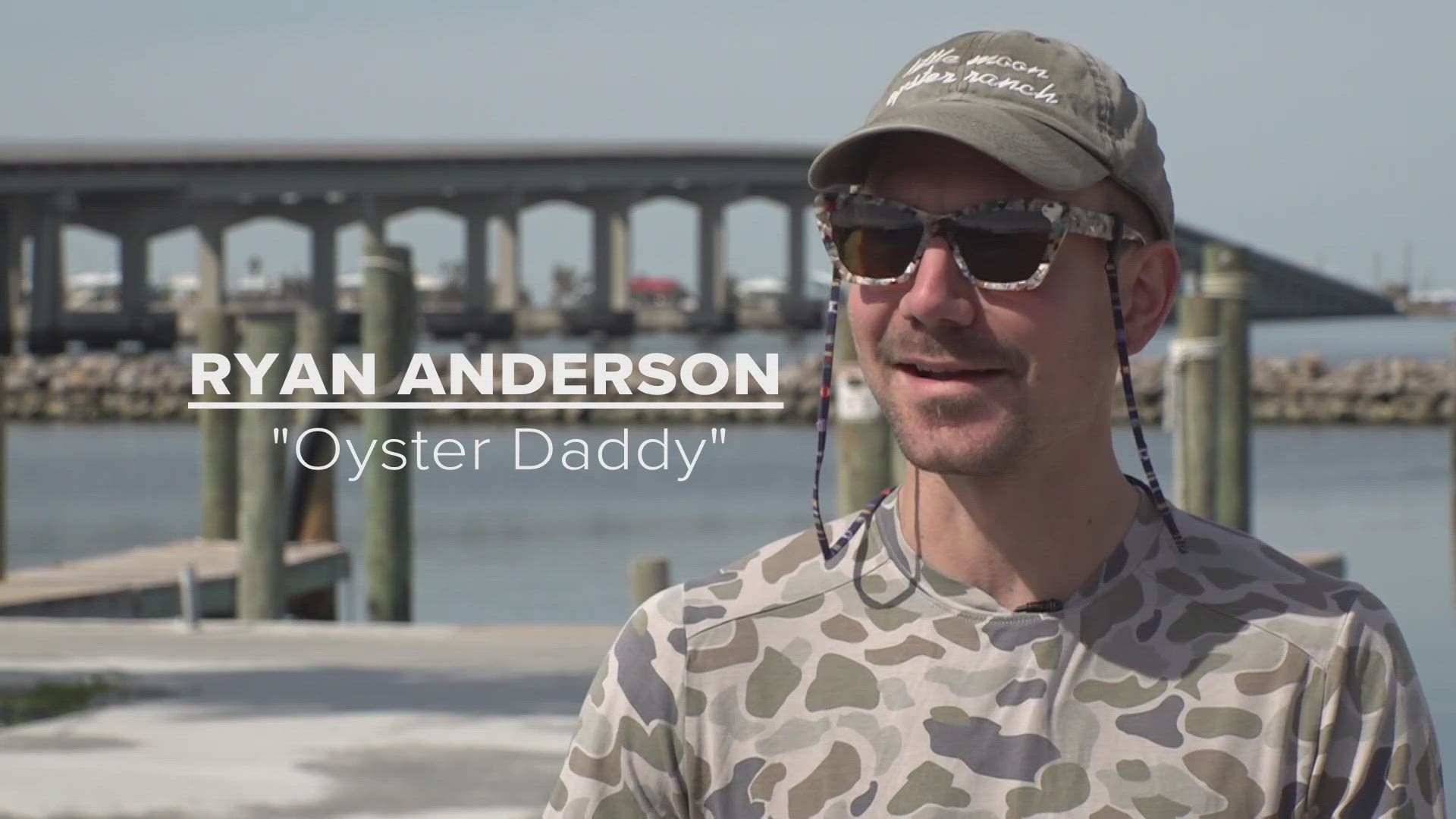GRAND ISLE, La. — After years of working in the hospitality industry, Ryan Anderson quit his job to start Little Moon Oyster Ranch.
“It takes a lot of care. It takes a lot of patience," Anderson said, “There’s [sic] a lot of scary times. There are a lot of rewarding times, but I think as long as you’re passionate and driven about something, you can usually find a way to make it work.”
The 'ranch' consists of floating cages located in waist-deep water in the bay of Grand Isle.
Anderson was already familiar with oystering. He grew up in southern Maryland on the Chesapeake Bay.
"I grew up crabbing and oystering up there," Anderson said, “That taught me about working with the land, really having a lot of respect for the waterways.”
Now, Anderson is better known as 'Oyster Daddy.'
“My friend was like, you’re raising the oysters. You’re the oyster’s daddy. And I was like yeah essentially that’s what I am. So, that name kind of stuck," Anderson said.
Anderson is now well known on Instagram for teaching others about aquaculture and sharing oyster humor.
“In Grand Isle, we’re still building up to the production level of somewhere like Florida for aquaculture oysters," Anderson said, “There’s actually maybe 8 of us now and it’s actually been in the last four years that this has become more popular. This growing style.”
Anderson said the ranch all started from seeds he bought from hatcheries across the Gulf Coast. The seed grows in the cages until it reaches the perfect size to serve.
“Three to four fingers are usually what I go for," Anderson said.
Anderson sells his oysters to restaurants or shucks them himself.
“In New Orleans, we have sort of this issue that I was running into a couple years ago. Where oysters are increasingly more and more expensive," Anderson said, “So, I started Oyster Daddy as a sort of like popup and catering business that I was growing at a cheaper rate than what you could get at a restaurant.”
Anderson said the concept of oyster aquaculture started about 20 years ago, and it all boils down to genetics and how the oysters grow.
“It’s a little more sustainable and easier to manage than doing the wild harvest oysters," Anderson said.
Instead of dredging a reef, the oysters grow in floating cages, and they don't spawn. Because of that, and refrigeration requirements, they're less likely to make you sick, Anderson said.
“Kind of doing away with that myth that you can’t eat oysters in the summertime," Anderson said.
Anderson said traditional oysters are beneficial for fortifying Louisiana's disappearing marshes, but aquaculture oysters are just as good at cleaning the water.
“It’s a cool thing for the environment and sustainable meat production, and food production, in the US," Anderson said.
Plus, oyster farms take less capital than a huge boat and diesel to get started, Anderson said.
“It just requires a lot less. You know I run a smaller boat. I don’t use as much gasoline. Again, it’s just me operating so it’s a lot less input than the more traditional ways of fishing," Anderson said.
Anderson said he enjoys keeping this Louisiana tradition accessible to all.
“I’m able to grow food for the community I live in and be able to provide this really delicious and wonderful thing that used to be super plentiful and now is more of a luxury product," Anderson said.
You can find 'Oyster Daddy' on Instagram, here. He uses Instagram to place orders and take catering inquiries.
► Get breaking news from your neighborhood delivered directly to you by downloading the new FREE WWL-TV News app now in the IOS App Store or Google Play.

